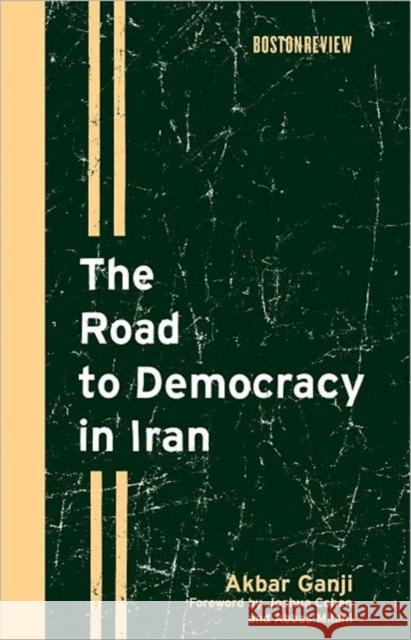The Road to Democracy in Iran - stan bdb 9780262072953 » książka
The Road to Democracy in Iran - stan bdb 9780262072953
ISBN-13: A780262072953 / Angielski / Twarda / 2008 / 144 str.
The Road to Democracy in Iran - stan bdb 9780262072953
ISBN-13: A780262072953 / Angielski / Twarda / 2008 / 144 str.
(netto: 20,00 VAT: 5%)
Rabat: -60%
Najniższa cena z 30 dni: 52,50
ok. 1-3 dni roboczych
Darmowa dostawa!
Stan bardzo dobry - książka była czytana, ale jeszcze długo posłuży innym czytelnikom. Ma ślady używania - otwierania i kartkowania, rysy, zabrudzenia. Wygląda jak książka, którą wypożyczasz w bibliotece.Akbar Ganji, called by some "Iran's most famous dissident," was a member of the Islamic Revolutionary Guard Corps. But, troubled by the regime's repressive nature, he became an investigative journalist in the 1990s, writing for Iran's pro-democracy newspapers. Most notably, he traced the murders of dissident intellectuals to Iran's secret service. In 2000 Ganji was arrested, sentenced to six years in prison, and banned from working as a journalist. His eighty-day hunger strike during his last year in prison mobilized the international human rights community. The Road to Democracy in Iran, Ganji's first book in English, demonstrates his lifelong commitment to human rights and democracy. A passionate call for universal human rights and the right to democracy from a Muslim perspective, it lays out the goals and means of Iran's democracy movement, why women's rights trump some interpretations of Islamic law, and how the West can help promote democracy in Iran (he strongly opposes U.S. intervention) and other Islamic countries. Throughout the book Ganji argues consistently for universal rights based on our common humanity (and he believes the world's religions support that idea). But his arguments never veer into abstraction; they are rooted deeply in the realities of life in Islamic countries, and offer a clear picture of the possibilities for and obstacles to improving human rights and promoting democracy in the Muslim world. Since his release from prison in March 2006, Akbar Ganji has been traveling outside Iran, meeting with intellectuals and activists in the international human rights community. He is currently living in the United States."Ganji goes beyond religion, ethnicity, or nationality in recognizing universality of concepts such as democracy and human rights. Thus he brings Iran back to the world, allying himself with democratic elements in his country no matter what their creed, and drawing freely upon the writings of democratic thinkers in the West."--Azar Nafisi, author of Reading Lolita in Tehran











